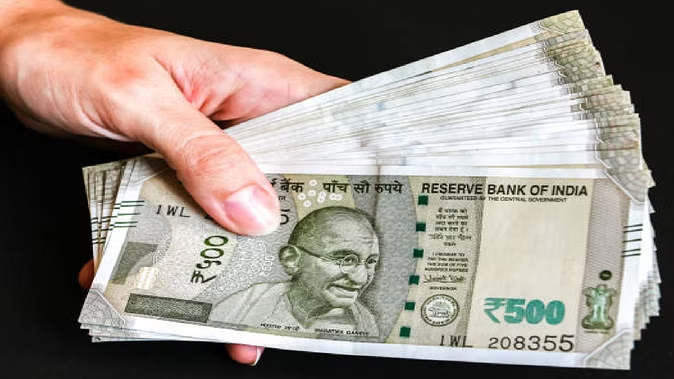UPSC recruits only about 1000 posts every year. Despite this, the number of students appearing for the UPSC exam is continuously increasing. Whereas today new types of jobs and start-ups are emerging in India
UPSC exam in India is not just an exam but a passion. Lakhs of youth spend years of their lives preparing for this one exam. Some leave their career, marriage and family and put everything at stake to prepare for the exam.
But recently, economist SanjeevSanyal, a member of the Prime Minister's Economic Advisory Council, has called taking 7 to 8 years to prepare for UPSC a 'waste of time'. His statement has started a new debate in the country.
SanjeevSanyal said in a podcast, I think a lot of young people who have a lot of energy are wasting their time trying to crack the UPSC exam. Every country needs a bureaucratic system, so it is right to give such an exam. But I think that lakhs of people spend their best years preparing for this exam, whereas only a few thousand people succeed in it. I don't understand why. If the same time were spent elsewhere, we could win more Olympic medals, make better films, and produce better doctors and scientists.
'Why dream of becoming a joint secretary?'
53-year-old economist SanjeevSanyal also talked about 'lack of aspirations' in his talk. He also gave the example of Bihar and West Bengal to strengthen his argument. He said that in such an environment where so-called intellectuals and union leaders are considered ideal (West Bengal), or small-time hooligan politicians (Bihar) are considered ideal, the only way out is to do a government job. But in a way, this also shows a lack of aspirations. You should dream of becoming like Elon Musk or MukeshAmbani. Why dream of becoming a joint secretary?
What is the meaning of SanjeevSanyal's statement?
Economist SanjeevSanyal means that today is a period of new possibilities in India. New types of jobs and start-ups are emerging. In such a situation, it is not right for lakhs of youth to spend 7-8 years of their lives preparing for a single exam. Instead of wasting so many years on a job, it is better to invest this time in some business or career and you will get good results.
Why Indians want to become civil servants:
In Indian society, civil servants are seen as intelligent and capable people who serve the country. Jobs in civil services are permanent and provide a good pension. Apart from this, respect, secure job, status and high salary are also a reason. To become a civil servant, an examination is conducted by the Union Public Service Commission (UPSC). This examination is one of the most prestigious examinations in India.
Joining the Civil Services means that you will be working in one of the most respected and prestigious institutions in the country. After passing this examination, one gets the opportunity to get a job in the Indian Administrative Service (IAS), Indian Police Service (IPS), Indian Foreign Service (IFS) and other civil services. Civil servants play a big role in making and implementing policies. They can bring positive changes in the society and improve the lives of people.
What percentage of students can pass the exam?
In the year 2023, about 13 lakh students appeared in the preliminary exam. Of these, only 14,624 students were able to qualify for the main examination. Whereas recruitment was to be done for a total of 1255 government posts only. Out of so many students, only 14,624 students could score the cutoff marks and get selected for the main examination. The remaining students dropped out at this stage.
Whereas 11.52 lakh students had applied for the UPSC exam of 2022. Out of such a large number of students who appeared, 13,090 students were successful in clearing the preliminary examination and qualifying for the main examination. However, according to the final result, only 933 students were selected to join the civil services.
This means that only 1 percent of the students who appeared in the preliminary examination was able to proceed to the next stage and 0.01 percent of the students were able to join the civil services. These figures show how difficult the UPSC exam is and how few seats there are for government jobs. Every year the number of students appearing for UPSC exam is increasing, but the number of students selected remains almost the same.
Why is the UPSC exam difficult? It
is a very good thing to serve the country by becoming a government servant, but especially after passing the UPSC exam, it is very difficult to reach the top positions in the administration. At the same time, passing the UPSC exam is also not easy. This examination is considered one of the toughest examinations in the country. This requires hard work and focus for a long time.
The syllabus is so huge that it takes several months to understand even a little bit of each subject. By spending so many years just preparing for UPSC, many important years of life are lost. This preparation time is also very difficult.
Immense job opportunities in the era of AI.
Technology is changing rapidly not only in India but all over the world. Now the use of Artificial Intelligence (AI) is increasing in many fields. There has been a huge change in the job market in India in 2019 since the introduction of AI. The wave of AI has also created a lot of opportunities in areas like data science, engineering and machine learning.
Experts say that AI has brought a lot of changes in the field of employment, making some things easier and making some things more difficult. Even if AI eliminates some jobs, it will also create many new jobs. At present, the demand for AI-related professionals is increasing rapidly in India and it will increase further in the coming years.
The World Economic Forum (WEF), an organization that monitors the global economy, estimates that by the year 2025, AI will create 12 million more jobs than it will eliminate. By August 2023, about 4 lakh 16 thousand AI professionals were present in India, whereas currently, the demand is about 6 lakh 29 thousand. According to the report of Wheelbox National Employability Test (WNET), this demand is expected to reach 10 lakh by 2026.
Emerging Opportunities for Startups
India is the world's largest country in terms of population, which makes it the largest consumer market. At the same time, the country's economy is growing rapidly and people's purchasing power is also very high. In such a situation, new startups are emerging here. Young students can set up their new business in less time than the years they spend preparing for civil exams.
Recently, Union Minister PiyushGoyal has described startups as the 'backbone of new India'. He has advised all the entrepreneurs that India is on its way to becoming a 35 trillion dollar economy by 2047. During this period, startups will have a lot of opportunities. He says that India has now become the leader in the world. As India's economy grows from $3.5 trillion to $35 trillion, the youth will drive this change.
The Government of India is doing many things to promote young entrepreneurs under the 'Startup India' initiative. Under this initiative, DPIIT (Department for Promotion of Industry and Internal Trade) recognizes eligible companies as 'Startups'. Accredited companies get many benefits, such as: paying less tax, and following simple rules.










